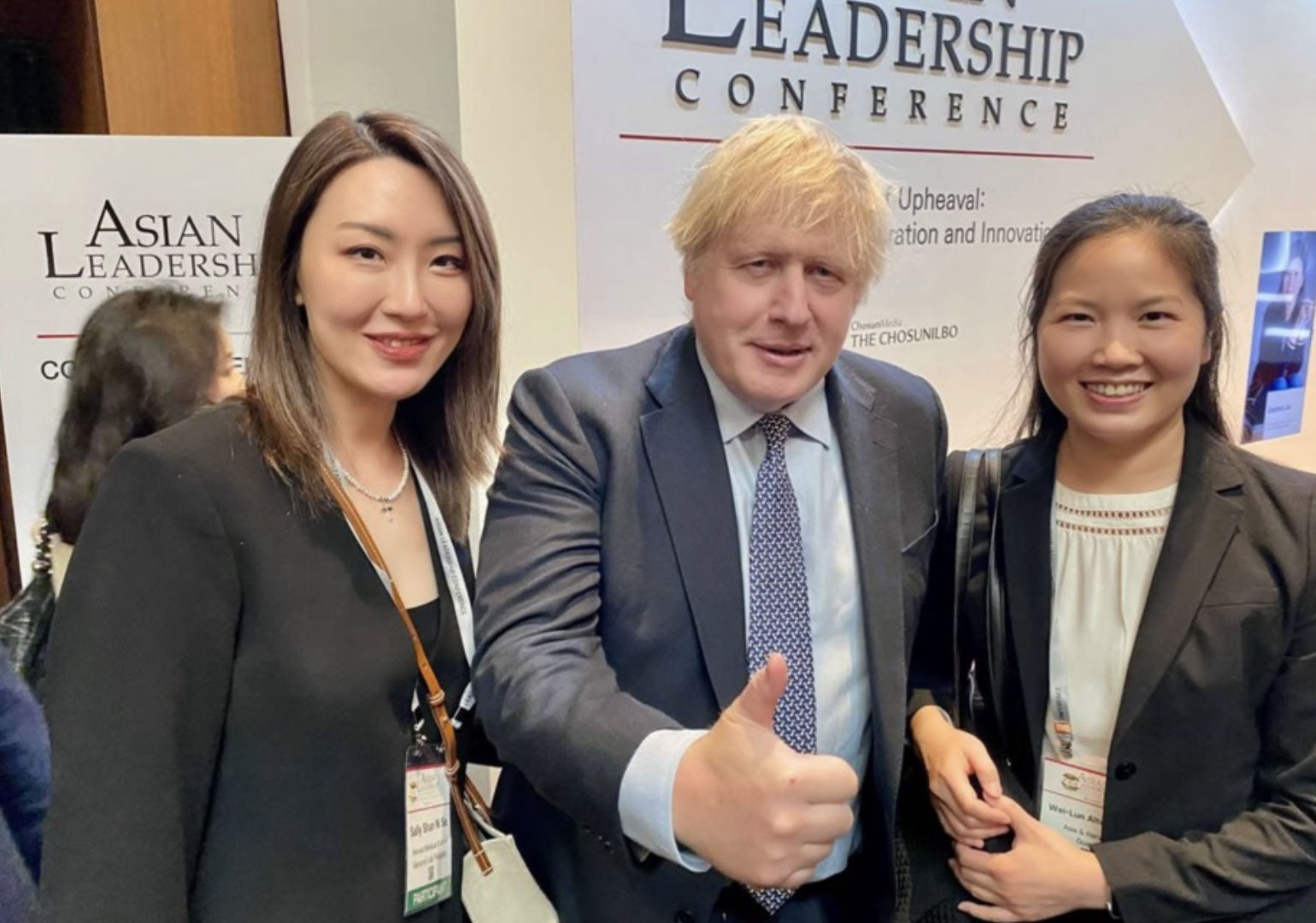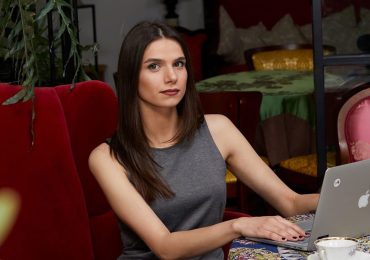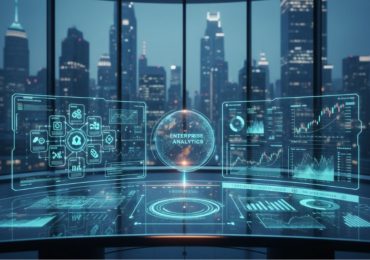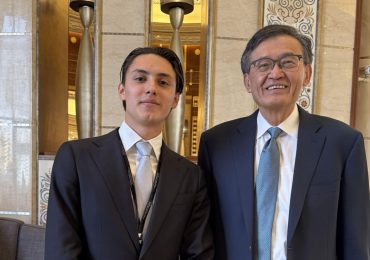Photo: GenomiiAI Founder Sally So (left), former UK Prime Minister Boris Johnson (center), and Genomii’s Chief Advisor Grace (right)
The woman staring into her phone camera is not posting to Instagram, checking her makeup, or testing a TikTok filter. She is recording a health measurement for an AI system that links her sleep, lunch salad, and yesterday’s sudden jawline redness.
Welcome to the world of GenomiiAI (Genomii), where its founder, Sally So, is perhaps reimagining the selfie as a powerful tool in personalized health management. It is the digital front door to a system that aims to do what generations of doctors, nutritionists, and wellness experts have struggled with: connecting the dots between everything that happens to one’s body, inside and out.
When Personal Pain Becomes Platform Innovation
For Sally So, GenomiiAI’s founder, the journey was not theoretical. It was painfully personal. She shares, “I was born with rashes that never fully healed. Year after year, eczema spread to my arms, legs, and neck, until 10 years ago, it reached my face. My face would swell, crack, and bleed. For months, I couldn’t show up to work or even walk outside.”
As her health challenges multiplied, including thyroid failure that triggered prediabetes, significant weight gain, and hormonal chaos, So reached a profound realization. “Our body isn’t a collection of symptoms,” she said. “It’s an interconnected system. Every bite, every heartbeat, every late night eventually whispers through our skin.”
That insight might have remained just another patient’s frustrated observation, except for a fortuitous meeting in 2022 with two scientists who would become her co-founders. Those two are Dr. Gil Alterovitz, director of the AI Cybernetics Lab at Harvard Medical School, and his wife, Dr. Weilun, a bioinformatics expert focused on skin health and aging.
Together, they combined lived experience with state-of-the-art AI infrastructure to create what they call “memory infrastructure” for the human body — GenomiiAI.
Saying Goodbye to Fragmented Health Data
Unlike most health apps that simply track isolated metrics, GenomiiAI’s proprietary Contextual Reasoning Experience (COREX) engine functions more like a lifelong health companion with perfect recall.
“Think about how doctors actually diagnose,” explains So. “They don’t just look at your blood pressure reading from today. They ask what you ate yesterday, how you slept last week, whether you’ve been stressed, and if your symptoms change with your menstrual cycle. They look for patterns across systems. That’s what the COREX engine does, but with computational precision humans simply can’t match.”
COREX weaves together different data streams. These include selfies that track skin changes, photos of meals, sleep patterns, stress levels, hormone fluctuations, and genetic predispositions. The company calls this a “personalized lifestyle graph,” which evolves in real time.
In traditional healthcare, providers often dismiss or fragment women’s complaints about systemic, interconnected symptoms across specialists who rarely coordinate care. Genomii connects all relevant data points from different sources into one lifestyle graph, making it easier for users to understand the causes behind their behaviors.
Your Selfie as Medical Device
For the target demographic of women between 30 and 50, GenomiiAI’s selfie feature hits a sweet spot of familiarity and utility. These women are already comfortable with their phone cameras but are increasingly concerned with skin changes, weight fluctuations, and the complex hormonal shifts of perimenopause.
The platform can detect the barely perceptible skin changes that might signal an inflammatory response to certain foods, hormonal shifts affecting collagen production, or stress-induced cortisol spikes that manifest as skin issues before causing other symptoms.
“We’re essentially turning something these women already do into a powerful diagnostic tool,” says So. “Our image recognition can detect subtle changes in skin tone, hydration, inflammation, and even hormonal patterns that most dermatologists might miss without lab work.”
However, GenomiiAI’s visual intelligence sets it apart from the dozens of other AI health assistants flooding the market. In addition to taking selfies, GenomiiAI users can also snap a photo of their meal.
Then, GenomiiAI’s AI identifies ingredients, estimates nutritional content, and, more importantly, correlates how specific foods affect that individual’s skin, sleep, energy, and other biomarkers over time. This method transforms the wellness experience from one-size-fits-all advice to a continuously evolving, deeply personalized navigation system.
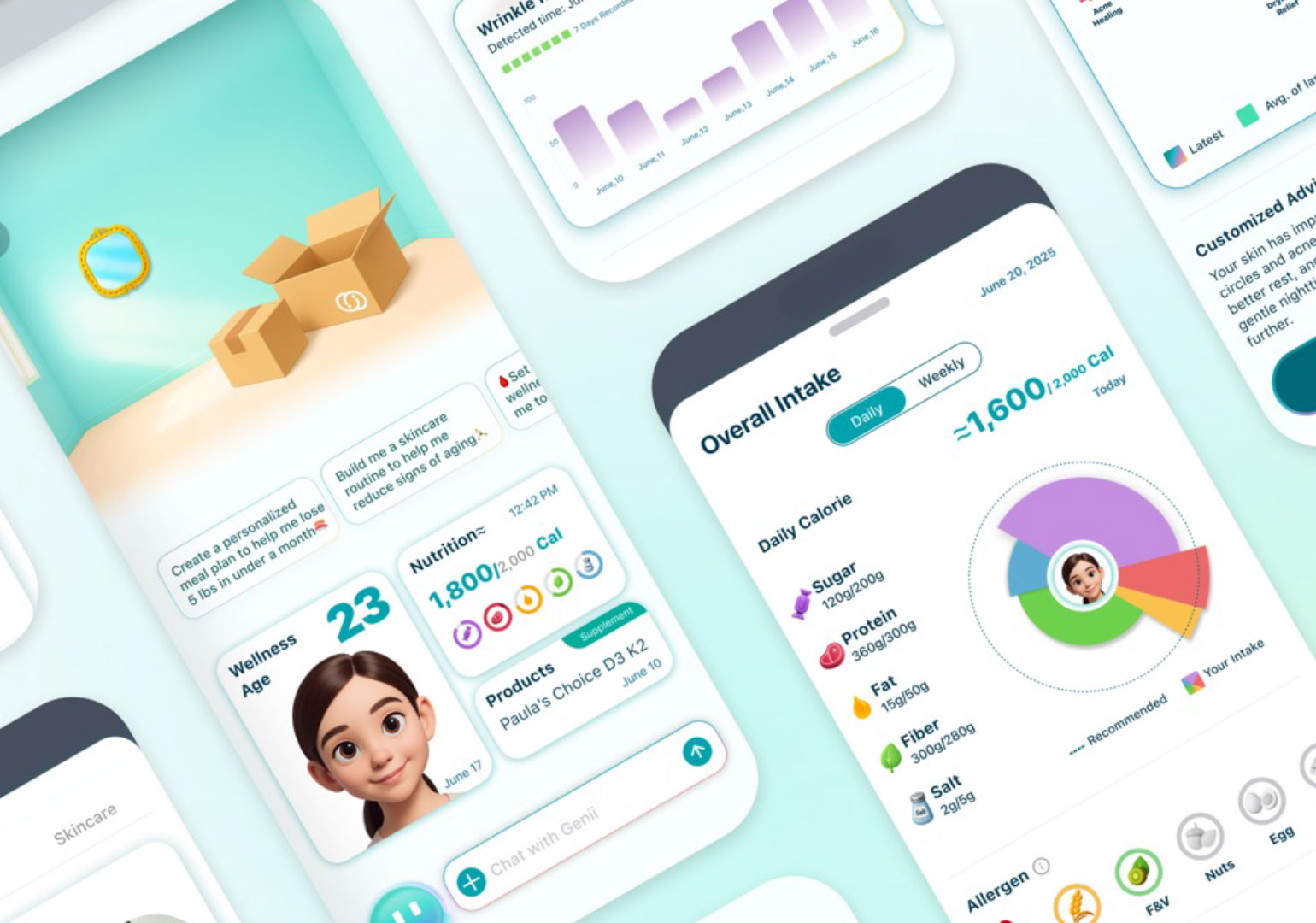
A Health Platform that Remembers
While health tech has become a crowded field, GenomiiAI’s leadership believes its competitive advantage lies in its memory-based AI in wellness, the increasing value and irreplaceability of a system that learns about one’s body over time.
Unlike traditional health apps that offer static reports or respond only to recent data, GenomiiAI designed its proprietary COREX engine to remember, correlate, and adapt to the user’s evolving health journey over time.
“Most health apps today are built to respond. Track your food. Count your steps. Give you advice based on yesterday’s data,” says So. “But life doesn’t happen yesterday. Stress levels change by the hour. Skin reacts overnight. Hormones shift weekly. What we eat, how we sleep, how we age, it’s all in motion.”
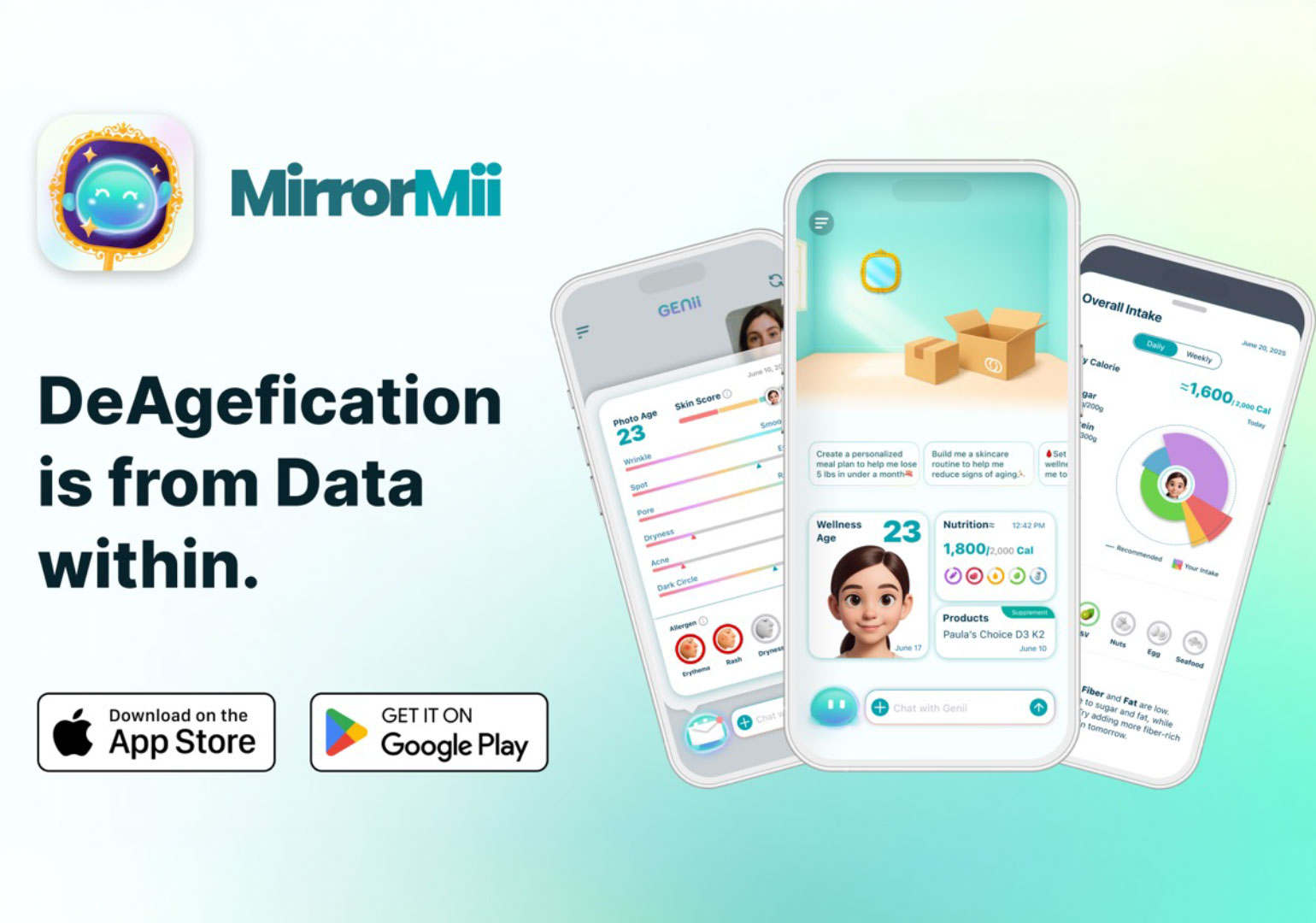
This means that every interaction, whether a logged meal, a sleep pattern, a stress episode, or a skin change detected from a selfie, becomes part of a dynamic, personalized lifestyle graph. GenomiiAI does not just store these instances; it learns from them, recognizing patterns such as recurring skin inflammation after poor sleep or blood sugar stabilization following afternoon workouts.
So explains, “If you eat strawberries and your face shows inflammation patterns two hours later, the COREX engine remembers that. Three weeks later, when choosing a dessert, it can remind you of that connection, not because strawberries are ‘bad,’ but because your particular biology responds to them in a specific way.”
This contextual memory enables GenomiiAI to offer recommendations that are not just reactive but predictive. These help users understand the “why” behind their health changes and guide them toward better outcomes. It essentially builds a digital twin that grows smarter and more precise the longer it is used.
The result is a platform that supports users in the present and anticipates future needs. This makes it emotionally and practically irreplaceable for those seeking meaningful, long-term health improvement.
The Future of Health Navigation
As GenomiiAI prepares to launch its beta application, the broader implications of such technology deserve consideration. The platform’s ability to decode complex connections between lifestyle factors and health outcomes is not just about personal optimization. It is about preventing health challenges from stealing precious family moments and relationships.
For Sally So, the stakes could not be higher. “I built GenomiiAI so I could keep showing up, for my son, for my aging parents, for my team, and for every woman who quietly endures what I once hid,” she says. “Now we’re building it for the world.”
Sally So believes GenomiiAI helps women aged 30-50 understand their bodies. This lets them use energy once spent on unexplained symptoms to focus on what matters most.
GenomiiAI offers a freemium entry point with basic avatar and food recognition features, with subscription tiers at $14.99 monthly or $7.99 monthly for annual commitments.

